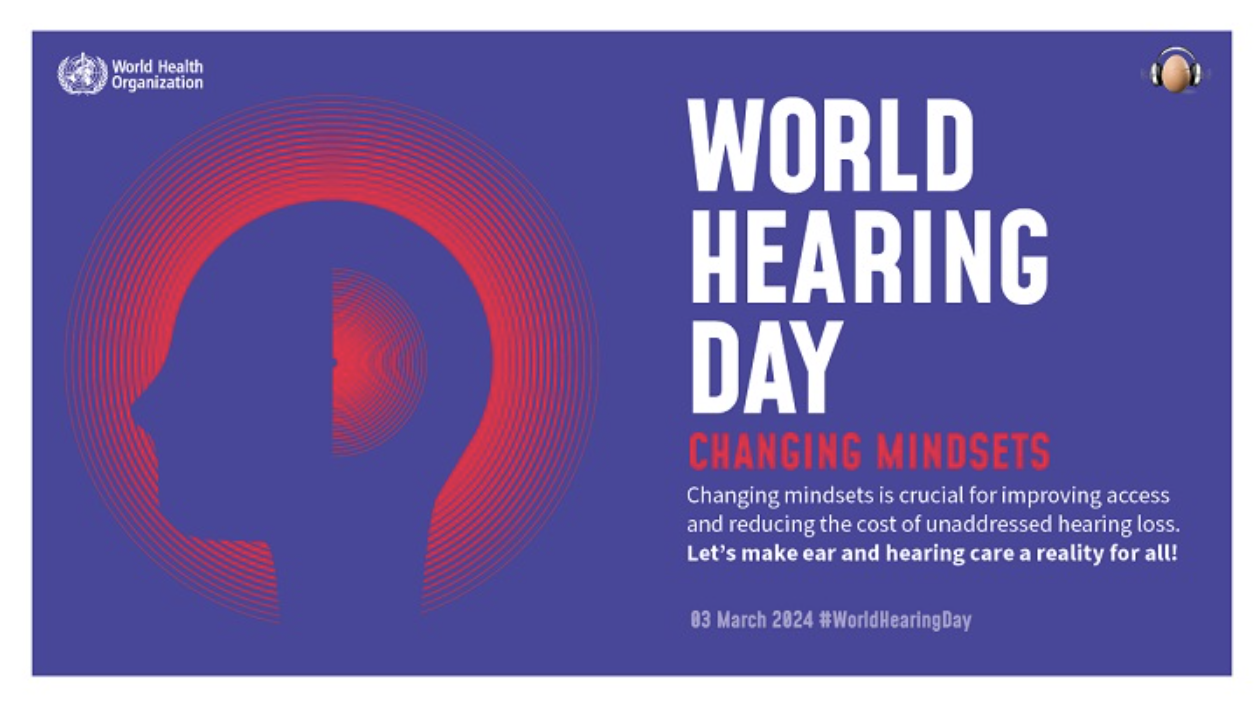
8 year old sells lemon(aids) to help fund children’s hearing aids
September 19, 2018
Deaf community speaks out against new film ‘The Silence’
September 21, 2018What it’s like to become a nurse with hearing loss

Many people say that nursing is an art- it’s where a passion meets a career.
Nursing is about helping people at their most vulnerable times. I have no doubt that this is what I was meant to do, but little did I know nursing had similar plans for me as well. Nursing helped me to embrace my biggest vulnerability- my hearing loss.
I will admit, many times I’ve questioned if it was even possible to be a hearing impaired nurse. But during my three years of nursing school, I’ve learned some valuable lessons that have helped shaped me into the nurse I am today and the nurse I will be in the future.
My name is Annie Resetar. I’m a nursing student with a moderate to severe hearing loss, and at the end of this upcoming school year, I’ll be graduating from Walsh University in North Canton, Ohio with a Bachelor of Science in Nursing. I am so thankful that I didn’t let my hearing disability hold me back from pursuing my passion.
Challenges in nursing school
My biggest challenge in nursing school was definitely related to my hearing impairment.
Sophomore year of nursing school you learn nursing assessment basics. This includes assessing lung, heart, and bowel sounds. And while this was an exciting time for my classmates, it was a time of great stress for me.
I worried that I would miss something in my assessments due to my hearing impairment. Luckily to help, I purchased an amplified stethoscope, the Littman 3200. My solution to ensuring I wasn’t missing something in my assessments was to spend a lot of time in the labs to learn certain skills that did not come as easily to me because of my hearing loss.
In the labs, I focused on listening to the sim patient’s heart and lungs. I wanted to be sure I was listening at the correct places on the body and hearing the appropriate sounds.
Passing my clinicals
However, clinicals soon rolled around. For those of you not familiar with what clinicals are, they are an opportunity for nursing students to work as a nurse and get hands-on experience. During clinicals, the nursing students are under the supervision of their instructor and nurses on the floor as they practice various skills such as giving baths, passing medications, taking vital signs, and conducting patient.
One day I was finishing up my assessment, and the patient’s actual nurse came and asked. “You heard the crackles in the base of this patient’s right lung, right?”
I nodded, but as soon as she left the room my heart sunk and my eyes welled up with tears.
No, I hadn’t heard those crackles. I thought to myself, “This is something you should’ve caught Annie!”
This bothered me for the rest of the day and to say I was disappointed myself would be an understatement. That night I remember going home and crying to my roommate, if I couldn’t hear these sounds with an amplified stethoscope, surely there is no hope for me as a future nurse!
I reached out to a teacher on the faculty. I told her about my difficulties and admitted to her that I had doubts about myself as a nurse.
“You are so hard on yourself!” She said looking directly at me. “Honestly, I may not have heard the crackles and I’ve been a nurse forever! I talked to your clinical instructor and he didn’t hear the crackles either. Remember, you are a beginner and are still learning the sounds and the correct places to listen to them. You have demonstrated that you will do just fine as a nurse, just have confidence in yourself.”
Confidence is important
Confidence. That was surely the one thing I had been lacking. Practicing these skills in the lab was completely different from using them in real-world hospitals, where it actually mattered!
Read more: How to live confidently with hearing loss
But, I began to believe in myself and accept that I was, in fact, a novice. I began to be more purposeful about where I placed my stethoscope and with time my confidence did grow. I will admit that sometimes it takes me longer to do my assessments, and I must do them with more focus and precision. But I can now say that I do them with confidence. I know that my assessments are thorough and done with accuracy.
“I began to be more purposeful about where I placed my stethoscope and with time my confidence did grow.”
Proud of my disability
Given the chance, I would not get rid of my disability. Patients see my fancy stethoscope when I walk into the room and they ask me about it. This summer I’ve been interning at Akron Children’s Hospital. Many of the kids do ask about it!
I explain to them that my ears don’t quite hear as well as their ears do, but my hearing aids help me to hear. Just like glasses help people to see. If they want, I let them take a listen to themselves. It is so fun to see their faces light up in amazement when they hear their own heart and lungs.
“I explain to them that my ears don’t quite hear as well as their ears do, but my hearing aids help me to hear.”
I think my hearing disability sets me apart and makes me a better nurse. It helps build trust with my patients. It is a testament that there are things wrong with all of us, but that should not get in the way of our lives and dreams. Rather, we simply must adapt and embrace these differences because they make us stronger.
“I think my hearing disability sets me apart and makes me a better nurse.”
I am so happy I stuck with nursing. I don’t think I can adequately express how much I love it!
Falling in love with nursing
Through working as an aide in a nursing home and my clinicals/internship experience in hospitals I have been exposed to many people and situations.
I have heard stories about times in war or about being the only female student at a university. I have listened to the most beautiful stories about love and I have heard stories of deep conflict, depression, and sadness.
I have held a patient’s hands and watched them take their first steps after brain surgery. I’ve been a part of special moments such as birth and shared the joy with the family as they welcomed a new life in the world. But I have also held dying babies and children and watched as their families say goodbye.
All life is beautiful, I am so honored to be a nurse and play a small part in these patient’s lives.
Are you a nurse with hearing loss? What was your experience in becoming a nurse?





